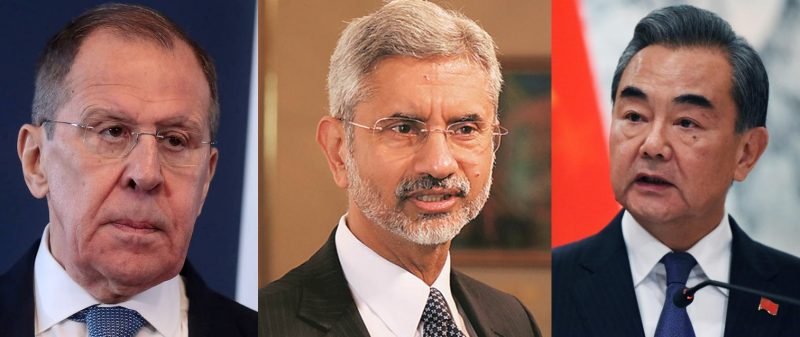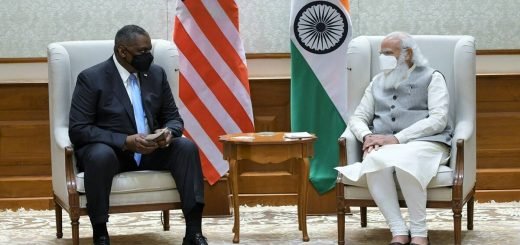RIC Foreign Ministers meet for Trilateral Meeting

Russian Foreign Minister Sergey Lavrov, Indian External Affairs Minister Subrahmanyam Jaishankar, and Chinese State Councillor and Foreign Minister Wang Yi, held a virtual trilateral meeting in the midst of rising tensions in the disputed Ladakh region between India and China. The Galwan Valley incident along the Line of Actual Control (LAC) that took place on June 15 left 20 Indian soldiers dead, while China has not yet officially declared the details of its casualties.
Originally planned for March 2020 but postponed due to the COVID-19 pandemic, the RIC meeting was conducted as Russia’s initiative to mark the 75th Anniversary of the end of World War II which led to the foundation of the United Nations. India was initially reluctant to join today’s trilateral meeting but agreed following a request from host nation Russia.
S. Jaishankar, in his speech, stated that “Respecting international law, recognizing the legitimate interests of partners, supporting multilateralism and promoting common good are the only ways of building a durable world order. I thank Russia for convening this meeting and look forward to our discussions.” This meeting centered around the motive to put forward diplomatic principles and took place over video conferencing and was chaired by Russia. The three ministers were to discuss the ongoing global pandemic and the challenges associated with global security and financial stability vis-à-vis the cooperation among Russia-India-China.
Sergey Lavrov stated the two nations (India and China) do not require any assistance from outside while underlining that New Delhi-Beijing demonstrated their promise to peaceful settlements, as a reference to the incident in the disputed Ladakh region. Russia’s reiteration of its endorsement of India having a permanent seat in the UN Security Council was noted during the RIC meeting. India has been recently elected a non-permanent member for a two-year term.
“But beyond history, international affairs must also come to terms with contemporary reality. The United Nations began with 50 members; today it has 193. Surely, its decision making cannot continue to be in denial of this fact. We, the RIC countries, have been active participants in shaping the global agenda. It is India’s hope that we will also now converge on the value of reformed multilateralism.” S. Jaishankar highlighted the importance of international affairs aligning to terms with contemporary reality.
As quoted by the Indian External Affairs Minister, “This special meeting reiterates our belief in the time-tested principles of international relations. But the challenge today is not just one of concepts and norms, but equally of their practice.” which put forward the contention that Indian sacrifices in World War II also needed to be reamed.


















